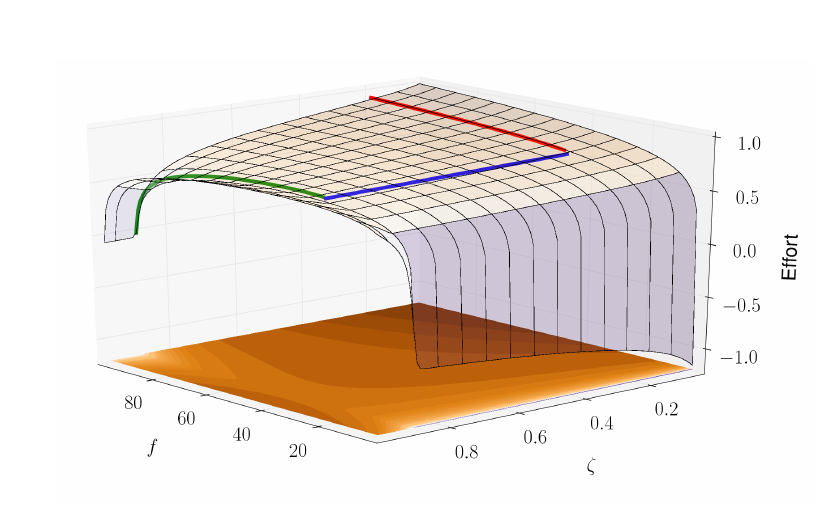How can social herding enhance cooperation?
Frank Schweitzer, Pavlin Mavrodiev and Claudio Juan Tessone
ACS - Advances in Complex Systems (2013)
Research: Reputation Trust Cooperation
Abstract
We study a system in which N agents have to decide between two strategies θ_((i)) (i ∈ 1... N), for defection or cooperation, when interacting with other n agents (either spatial neighbors or randomly chosen ones). After each round, they update their strategy responding nonlinearly to two different information sources: (i) the payoff a_((i))(θ_((i)), f_((i))) received from the strategic interaction with their n counterparts, (ii) the fraction f_((i)) of cooperators in this interaction. For the latter response, we assume social herding, i.e. agents adopt their strategy based on the frequencies of the different strategies in their neighborhood, without taking into account the consequences of this decision. We note that f_((i)) already determines the payoff, so there is no additional information assumed. A parameter ζ defines to what level agents take the two different information sources into account. For the strategic interaction, we assume a Prisoner's Dilemma game, i.e. one in which defection is the evolutionary stable strategy. However, if the additional dimension of social herding is taken into account, we find instead a stable outcome where cooperators are the majority. By means of agent - based computer simulations and analytical investigations, we evaluate the critical conditions for this transition towards cooperation. We find that, in addition to a high degree of social herding, there has to be a nonlinear response to the fraction of cooperators. We argue that the transition to cooperation in our model is based on less information, i.e. on agents which are not informed about the payoff matrix, and therefore rely on just observing the strategy of others, to adopt it. By designing the right mechanisms to respond to this information, the transition to cooperation can be remarkably enhanced.

